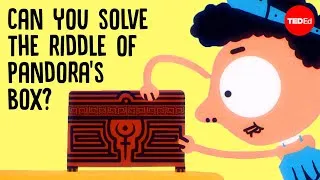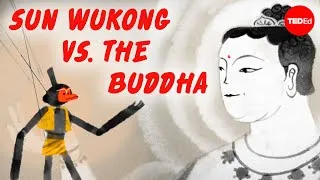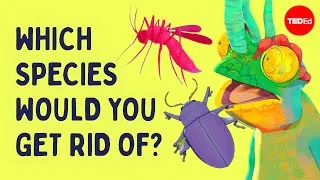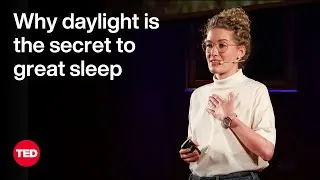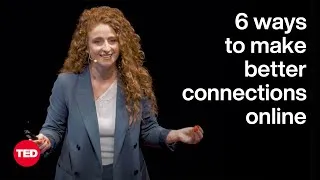The sibling rivalry that divided a town - Jay Van Bavel and Dominic Packer
305,059 views ・ 2022-11-17
請雙擊下方英文字幕播放視頻。
譯者: Lilian Chiu
審譯者: Helen Chang
00:07
In the years before World War Two,
0
7920
2169
在第二次世界大戰前的那幾年,
00:10
a pair of brothers worked together
as shoemakers
1
10089
3170
有一對鞋匠兄弟一起工作,
00:13
in the German town of Herzogenaurach.
2
13259
2461
地點在德國的黑措根奧拉赫。
00:16
But during the war, the siblings
had a terrible argument—
3
16137
3837
但在戰爭期間,
這對手足大吵了一架——
00:19
a fight so explosive it split
the family business in two.
4
19974
4421
他們吵得非常兇,
導致家族事業分家。
00:25
At first, the feud only infected
their newly competing personnel.
5
25188
4296
最初,鬥爭只存在於
他們互相競爭的員工之間。
00:29
But over the coming years,
6
29734
1668
但在接下來的年間,
00:31
this disagreement divided
all of Herzogenaurach.
7
31402
3379
整個黑措根奧拉赫
都因為他們的不合而分裂。
00:35
Residents became fiercely
loyal to one brand of shoe.
8
35156
4463
居民變得非常忠於
其中一個鞋子品牌。
00:39
Local businesses chose sides and
marriage across lines was discouraged.
9
39952
5005
地方企業選邊站,
兩邊的人通婚則會被勸阻。
00:45
Herzogenaurach eventually became
known as “the town of bent necks”
10
45333
4963
最後,黑措根奧拉赫成了
一般所知的「低頭城鎮」,
00:50
because its residents looked down
to ensure they were interacting
11
50296
3337
因為其居民要低頭看鞋子,
確保他們互動的對象
00:53
with members of their group.
12
53633
1960
是和自己同一邊的人。
00:55
But could such a serious divide
really be about shoes?
13
55968
3921
但這麼嚴重的分裂,
真的只是因為鞋子嗎?
01:00
Doesn’t it take more significant
cultural differences
14
60181
3003
不是應該要有更明顯的文化差異,
01:03
to produce this degree of conflict?
15
63184
2085
才會產生這種程度的衝突嗎?
01:05
To answer this question, we can turn
to social psychologist Henri Tajfel
16
65603
5047
要回答這個問題,
我們可以去轉向社會心理學家
亨利‧泰菲爾
01:10
and his collaborators
at the University of Bristol.
17
70650
3462
以及他在布里斯托爾
大學的共同研究者。
01:14
This team developed
the minimal group paradigm,
18
74529
3587
這個團隊發展出了
「最小團體研究典範」,
01:18
a methodology designed to investigate
19
78116
2335
這個方法論的目的是在探究
最少要符合什麼條件
01:20
the minimal conditions required
to turn people against each other.
20
80451
3837
才能讓人彼此對抗。
01:24
Their plan was to gather participants
without the usual factors
21
84831
3712
他們的計畫是招集受試者,
這些人沒有一般會導致敵意的因素,
01:28
that lead to hostility,
22
88543
1459
01:30
such as religious, ethnic,
gender, or other cultural differences.
23
90002
4130
比如宗教、人種、性別,
或其他文化上的差異。
01:34
Then, they would split into groups,
24
94423
2086
接著,這些人被分組,
01:36
and run them through scenarios
that added one variable at a time
25
96509
4212
讓他們體驗情境,
一次增加一個變數,
01:40
to see what stirred up conflict.
26
100721
2128
看什麼會激起衝突。
01:43
But first, they needed
a control condition—
27
103224
2878
但首先,他們需要
一種當控制組的情況——
01:46
a pair of groups without any group bias.
28
106102
3211
兩組人,沒有任何對組的偏見。
01:49
The researchers told participants
they were being grouped
29
109480
3003
研究者告訴受試者,他們分組的依據
01:52
based on their ability to estimate things
correctly or incorrectly;
30
112483
3754
是他們正確或錯誤估計事物的能力,
01:56
but in reality,
the groups were totally random.
31
116404
2711
但實際上,分組是完全隨機的。
01:59
Since the researchers ensured none
of the participants interacted,
32
119490
3671
因為研究者有確保
受試者彼此間不能互動,
02:03
no one could form any judgments
or personal bonds.
33
123161
3461
沒有人能形成任何評斷或個人連結。
02:06
Then everyone was given resources
to distribute.
34
126622
3212
接著給予每個人資源,讓他們分發。
02:10
Each participant was free to give
resources to members of either group,
35
130168
4462
每位受試者都可以自由將資源
給予任何一組的成員。
02:14
and importantly, everything was anonymous.
36
134630
2836
重要的是,一切都匿名進行。
02:17
So whatever a participant decided,
37
137925
2211
所以不論受試者怎麼決定,
02:20
it had no impact on how many resources
they personally would receive.
38
140136
4629
都不會影響到他們個人
會接收到多少資源。
02:25
With all the ingredients
for discrimination removed
39
145641
2878
所有歧視的因素都被除去了,
02:28
and no reason for competition
over resources,
40
148519
3128
也沒有理由要為了資源競爭,
02:31
the scientists assumed this would
make a conflict-free baseline
41
151772
4171
科學家假設,
這會成為沒有衝突的基線值,
02:35
for further research.
42
155943
1377
供進一步研究用。
02:37
But even in these groups,
43
157612
1876
但就連在這些組中,
02:39
where membership was only defined
by a perceived similarity
44
159488
3754
組員身分的定義只有
自身感知大家具有
02:43
in possessing an arbitrary skill,
45
163242
2544
相似的某種任意技能,
02:45
individuals still showed in-group bias.
46
165786
3504
受試者仍然展現出對同組的偏心。
02:50
They consistently gave more to members
of their own group than the out-group.
47
170082
4380
他們給予同組成員的資源
很一致地比給非同組成員多。
02:55
Later, research went even further,
48
175046
2294
後來,研究再進了一步,
02:57
informing participants that the only thing
determining their group membership
49
177423
4838
告知受試者
他們就只是根據
擲硬幣的結果被分組的。
03:02
was a coin flip.
50
182261
1418
03:03
But group bias still occurred.
51
183846
2836
但對組的偏心仍然會產生。
03:06
The minimal groups of “us” and “them”
were enough.
52
186891
3962
只要有「我們」
和「他們」之別就足夠了。
03:11
So, in the absence of stereotypes,
resource conflicts and status differences,
53
191354
5380
所以,沒有刻板印象、資源衝突,
以及身分地位差異,
03:16
what was left?
54
196859
1210
還剩什麼?
03:18
What could possibly account for people
showing clear preferences
55
198194
4004
有什麼原因能說明這些人
會展現清楚的偏心,
03:22
for the most temporary and meaningless
of groups?
56
202198
3253
即使他們的分組是最暫時性
且完全無意義的?
03:26
The answer that came to Tajfel
and his colleagues was social identity.
57
206077
4462
泰菲爾和他的同事
想到的答案是社會認同。
03:31
People regularly use group membership
to help determine their sense of identity.
58
211332
5005
人通常會用團體成員身分
來協助決定他們的認同感。
03:36
And these minimal group experiments
suggested that simply being categorized
59
216587
4880
而這些最小團體實驗
指出單單只是被分到一個團體,
03:41
as part of a group is enough to link
that group to a person’s sense of self.
60
221467
5380
就足以將那個團體
和人的自我意識連結起來。
03:47
Then, in an effort to create
a meaningful identity,
61
227431
3128
接著,因為試圖要創造出
有意義的認同,
03:50
participants allocated more resources
to their in-group than the out-group—
62
230559
4839
受試者分給同組成員的資源
就會比其他組更多——
03:55
pursuing their group's interests despite
no clear benefit to themselves
63
235648
4963
追求所屬團體的利益,
儘管自己個人不會
明顯得到什麼益處。
04:00
as individuals.
64
240611
1377
04:02
Variants of these experiments have
been conducted around the globe,
65
242488
4004
這個實驗的各種版本
在全球各地進行,
04:06
examining how a shared sense
of “us” can affect our attention,
66
246492
4505
探討共同的「我們」感
會如何影響我們的注意力、感受、
04:10
perception, memory, and emotions.
67
250997
3295
記憶力,以及情緒。
04:15
The mental processes
behind minimal group distinctions
68
255084
3295
最小團體區別背後的心理過程
04:18
appear to be the same as many of those
that underlie real group identities.
69
258379
4630
似乎和許多真實的團體認同
背後的心理過程相同。
04:23
So it is possible that these seemingly
insignificant differences can harden
70
263092
4796
所以,的確有可能
這些似乎微不足道的差異
04:27
into much more serious divides.
71
267888
2545
能夠強化成更嚴重的分裂。
04:31
That said, minimal groups don't
always drive people apart.
72
271267
3503
話雖如此,最小團體
不見得都會把人分開。
04:35
Bringing individuals together
in a new group
73
275062
2503
把個人集結到一個新的團體裡,
04:37
can temporarily help people
overcome entrenched biases.
74
277565
4254
能暫時協助他們克服
根深蒂固的偏見。
04:42
However, these positive effects are easily
negated by external factors
75
282028
5088
然而,這些正面的影響
很容易就會被消除,
會強化既有團體認同的
外部因素就可能將它們消除。
04:47
that reinforce existing group identities.
76
287116
2628
04:50
Ultimately, the psychology of groups
is part of the human condition,
77
290411
3879
到頭來,團體的心理本來
就是人類境況的一部分,
04:54
and our tendency towards in-group bias
is an undeniable part of that.
78
294290
4504
而我們對同組偏心的傾向
也是它無可否認的一部分。
04:58
So it's up to all of us to make
our groups and ourselves
79
298919
3754
所以,要靠我們自己來讓
我們的團體和我們自己
05:02
as inclusive of others as possible.
80
302673
2586
盡可能包容接納其他人。
New videos
Original video on YouTube.com
關於本網站
本網站將向您介紹對學習英語有用的 YouTube 視頻。 您將看到來自世界各地的一流教師教授的英語課程。 雙擊每個視頻頁面上顯示的英文字幕,從那裡播放視頻。 字幕與視頻播放同步滾動。 如果您有任何意見或要求,請使用此聯繫表與我們聯繫。


